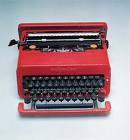
I’ve been thinking of the dis-intermediation of printing. The disruption of the book, the magazine and the newspaper are in the headlines. A change is upon us, the valuation of things and the physics of the economy are irreversibly new. The big companies that employ thousands are the ones we think of most. The ones with the most reach, the powerhouses, the giants, the ones with the furthest to fall seem the most tragic. It’s a trans-valuation of all values.
But my mind wanders to the little literary magazine, the publishing project done for the love of it. These little magazines always seem to lose money and struggle on year after year. There’s an industry of writer’s workshops across the country that coach and prod writers to fill the pages of the little literary magazines. The interesting thing about these little magazines is that it still takes a lot of money and infrastructure to publish them. Desktop publishing brought the price down, but there’s still the editing, design, printing and distribution.
We now have a publishing medium that allows direct distribution of text over the network. Blogging software has become the new typewriter, and publishing is as easy as Tim Berners-Lee originally imagined it would be. The little literary magazine serves the purpose of a filter, it finds the best writing. But the cost of the filter is not much more than the cost of producing the printed matter. Is the writing about the tradition of ink on paper, or is it about the art of putting one word after the other?
The other thread this tangles up with is Hugh Macleod’s idea of the global microbrand. Hugh writes and draws cartoons from a small town in Texas called Alpine. It’s just up the road from Marfa, Texas, the place where sculptor Donald Judd established an outpost for modern art and minimalism in 1971. Times have changed, and space has changed too. Used to be that Marfa was a long distance from New York City, now it’s just a click away.
Of course for the UNIX operating system, 1971 was the beginning of time. It probably also marked the date when distance began to shrink at a visible rate.
Audiences for the little literary magazine, or Hugh Macleod’s cartoons, no longer need to be locals. They don’t have to live in Alpine, they can see it all through the network. It’s a gathering of tribes from across the globe, not tribes based on proximity or kinship, but on a common social object. We like Hugh’s sense of humor, or the taste of an editor who assembles a collection of short stories. We form a bond.
The highest value in the swirl of texts, images and sounds that roar by us minute by minute, second by second on the network is the good editor, the curator, the finely-tuned filter. Philip Roth, in an introduction to a collection of eastern European writing during the cold war, made an insightful comment: when nothing is allowed, everything is significant; when everything is allowed, nothing is significant. When we can see everything, where do we choose to rest our eyes?
Comments closed